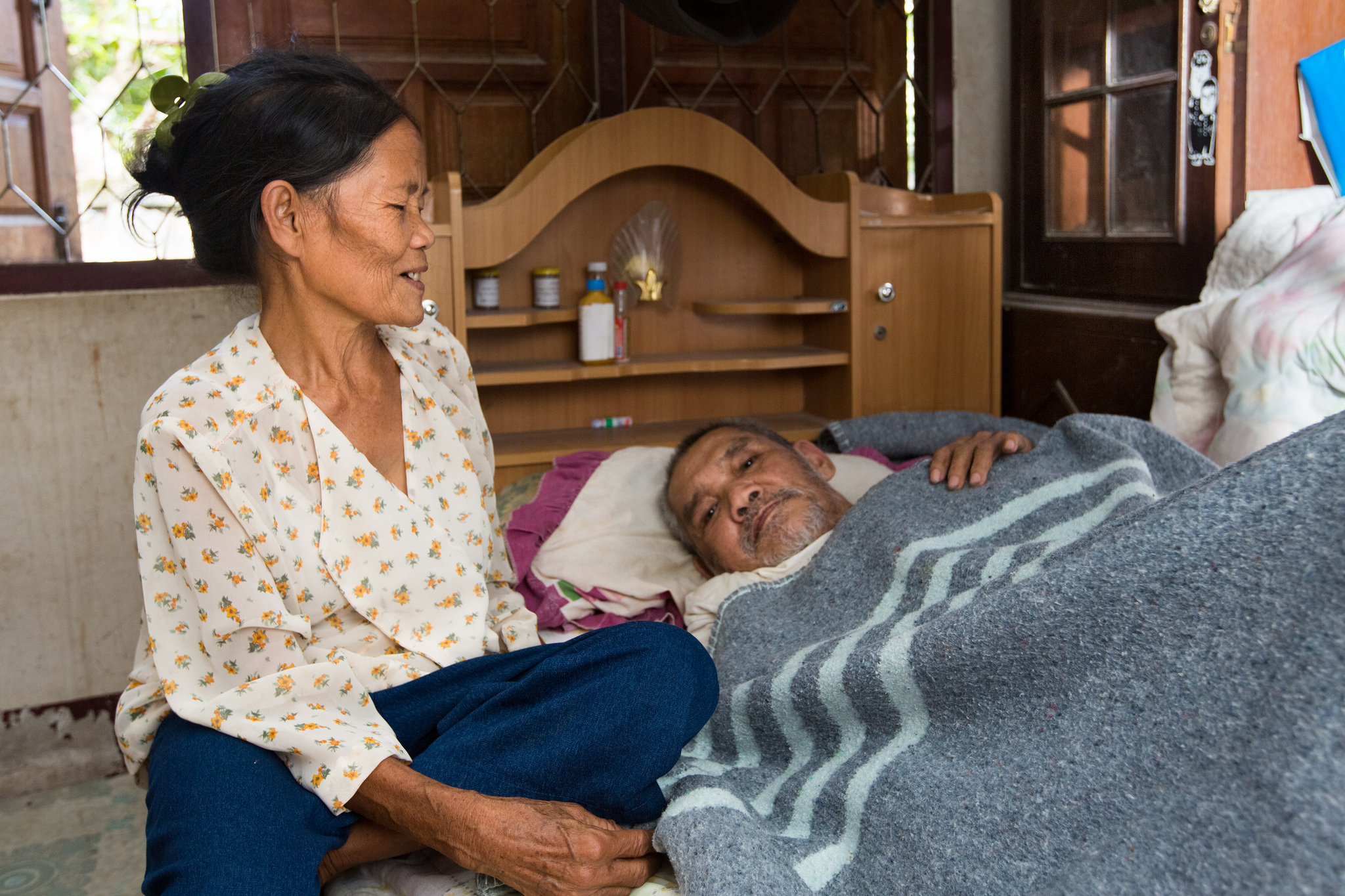
For a convention on older people’s rights to be strong and effective, it must reflect older people’s experiences across the world. This means we must make sure that older people are listened to every step of the way.
This July, member states and civil society organisations will get together at the 9th United Nations Open-ended Working Group on Ageing (OEWG). There they will talk about older people’s rights to long-term care and support, palliative care, and autonomy and independence, and how they should be framed in any new instrument on the rights of older people, such as a convention.
When the themes for 9th OEWG were announced, we set out to explore older people’s experiences of these rights. HelpAge International’s network members across the world held focus groups with 450 older people who talked about the availability of long-term care and palliative care in their communities, and what the barriers are in accessing them.
From Argentina to Zambia, many older people said they had little access to or control over the care and support services they need to live independent lives. And they said palliative care services are hard to access or, in many cases, do not exist at all.
Long-term care and support services are inaccessible and unaffordable
Long-term care and support are the services and assistance people receive to support with daily tasks like eating, washing, getting dressed or going out. In older age, these kinds of services are important to maintain other rights, including the freedom to live autonomously and independently.
Older people in every region told us that long-term care and support services are limited and unaffordable to everyone except those with high incomes. The types of care and support available varies, but often family members are the only providers.
“There are no support services available to older people in my community. Only family members are taken as or believed to provide assistance with daily activities. But this does not happen for all,” said a 71-year-old woman in Nepal.
The lack of care and support services forces older people to be dependent on family members, what they can provide may not be adequate to meet a person’s needs. For instance, in Serbia, one man said he has a lot of say over the care and support he receives, but what his relatives can actually do is limited.
But family members may not respect an older person’s autonomy. This denies them their independence. A 68-year-old woman in Nigeria told us: “Since my son has brought me to live in their apartment in the city, I do not have a say anymore. Sometimes I am locked in my room”.
Many participants said they have little choice over the types of care and support they receive, and sometimes do not trust the quality of those available. In the Philippines, one group concluded that “current programmes or provisions of the Government are unfit and incompatible or inappropriate for the needs of older persons”. Older people should have the right to care and support in the setting of their choosing and from a provider they have picked.
Palliative care remains unknown to many
Palliative care aims to improve the quality of life of a person going through a life-threatening illness. It aims to relieve pain and help patients with any psychological, social or spiritual needs.
Older people often said this concept was completely new to them. Many explained that there were no services of this type in their community, or at least there were none they knew of. In Russia, one group revealed they were unaware of these services and that “everything falls on the shoulders of relatives”. And in Moldova, another group said “we didn’t even know such services exist in our country or elsewhere”.
For those who knew about palliative care, older people identified high costs, lack of information and medical staff’s negative attitudes as the main barriers in accessing them. Poor quality services and long distances between their home and those services were also mentioned too.
Campaigners are calling for a solution
The rights to long-term care and support and palliative care are not clearly articulated in international human rights law anywhere.
Ultimately, we need a convention articulating that older people have the right to these types of care and support without any kind of discrimination . Right now, our Age Demands Action campaigners are out there advocating for these rights. They are using the results of the Freedom to decide for ourselves report to call on governments to listen to what older people in their countries are saying and to attend the Open-ended Working Group in July.
Help campaigners get their voices heard on World Health Day by sharing our Freedom to decide for ourselves report online and find out more about older people’s experiences of autonomy and independence in this blog by our Senior Rights Advisor, Bridget Sleap.
